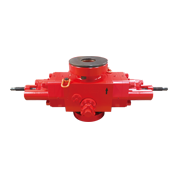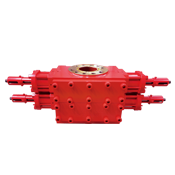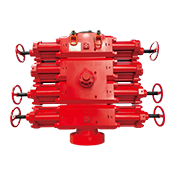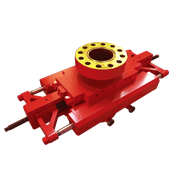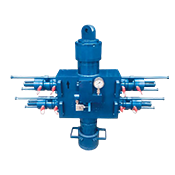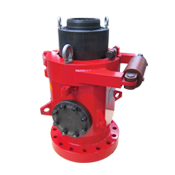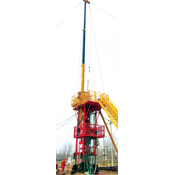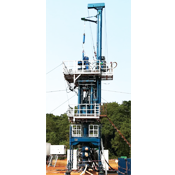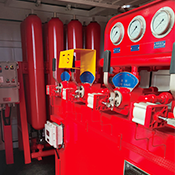Understanding the Benefits of Quality Blowout Prevent Systems for Agricultural Use
2024-10-14
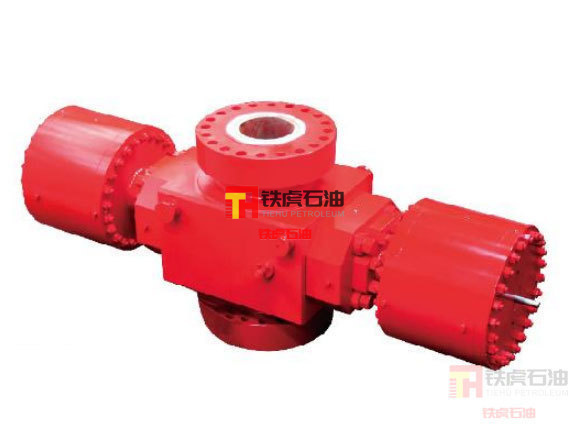
Understanding the Benefits of Quality Blowout Prevent Systems for Agricultural Use
Table of Contents
- 1. Introduction to Blowout Prevent Systems
- 2. Importance of Quality Blowout Prevent Systems in Agriculture
- 3. Key Design Features of Effective Blowout Prevent Systems
- 4. Applications of Blowout Prevent Systems in Agricultural Operations
- 5. Benefits of Implementing Quality Blowout Prevent Systems
- 6. Maintenance Practices for Optimal Performance
- 7. Common Failures and How to Avoid Them
- 8. Future Trends in Blowout Prevent Technology
- 9. Frequently Asked Questions
- 10. Conclusion
1. Introduction to Blowout Prevent Systems
Blowout prevent systems (BOPs) play a pivotal role in safeguarding agricultural machinery and equipment, particularly in operations involving high-pressure systems. These systems are designed to manage and control the pressure of fluids, preventing hazardous blowouts during agricultural activities. The significance of BOPs cannot be overstated, as they are essential for ensuring safety, minimizing downtime, and enhancing productivity in farming operations.
2. Importance of Quality Blowout Prevent Systems in Agriculture
In agriculture, the potential for equipment failure due to pressure fluctuations can lead to catastrophic failures. Quality blowout prevent systems are instrumental in offering a reliable line of defense against such incidents. They help maintain operational integrity and ensure that agricultural activities can proceed without interruptions caused by equipment malfunctions. Moreover, these systems are crucial for protecting both the environment and the safety of agricultural workers.
3. Key Design Features of Effective Blowout Prevent Systems
Quality blowout prevent systems come with a range of design features that enhance their effectiveness. Understanding these features is vital for selecting the right system for agricultural use. Key components typically include:
3.1 High-Pressure Ratings
The ability to withstand high pressure is a fundamental requirement. Quality BOPs are designed to operate under extreme conditions without compromising their integrity.
3.2 Durability Materials
The materials used in constructing blowout prevent systems significantly influence their performance and longevity. High-quality steel and corrosion-resistant materials are often employed.
3.3 User-Friendly Interfaces
Modern BOPs feature intuitive interfaces that allow operators to monitor and control pressure levels effectively. This enhances safety and facilitates quick responses to any potential issues.
3.4 Reliable Seals
Effective sealing mechanisms are critical for preventing blowouts. High-quality seals ensure that pressure is maintained, minimizing the risk of leaks and failures.
4. Applications of Blowout Prevent Systems in Agricultural Operations
Blowout prevent systems are utilized in various agricultural applications, including:
4.1 Irrigation Systems
In irrigation, BOPs help regulate water pressure, ensuring uniform distribution across fields while preventing overflows and damage to equipment.
4.2 Fertilizer Application
When applying fertilizers under pressure, blowout prevent systems safeguard against accidental releases, which can harm crops and the environment.
4.4 Seed Planting
Maintaining the correct pressure during seed planting operations is crucial for achieving optimal planting depth and spacing. BOPs assist in managing these parameters.
5. Benefits of Implementing Quality Blowout Prevent Systems
Investing in quality blowout prevent systems yields numerous benefits for agricultural operations, including:
5.1 Enhanced Safety Measures
The foremost advantage of BOPs is the increased safety they provide. By controlling pressure levels, they significantly diminish the risk of accidents and injuries.
5.2 Improved Operational Efficiency
With reliable blowout prevent systems in place, farmers can expect smoother operations, leading to reduced downtime and increased productivity.
5.3 Cost Savings
Preventing equipment failures through effective pressure management can save farmers substantial repair costs and operational losses over time.
5.4 Environmental Protection
BOPs minimize the risk of spills and leaks, promoting responsible agricultural practices that are crucial for protecting the environment.
6. Maintenance Practices for Optimal Performance
To ensure blowout prevent systems function optimally, regular maintenance is essential. Key maintenance practices include:
6.1 Routine Inspections
Periodic inspections should be conducted to check for wear and tear, proper sealing, and functionality of pressure gauges.
6.2 Replacement of Worn Components
Identifying and replacing worn seals, gaskets, and other components promptly can prevent failures and extend the lifespan of BOPs.
6.3 System Calibration
Regular calibration of pressure settings ensures accurate readings and effective operation, which is crucial for maintaining safety.
7. Common Failures and How to Avoid Them
Understanding common failures associated with blowout prevent systems can help in avoiding costly downtime. Some frequent issues include:
7.1 Seal Failures
Worn seals can lead to leaks. Regular inspections and timely replacements can mitigate this risk.
7.2 Pressure Gauge Malfunctions
Faulty gauges can mislead operators about actual pressure levels. Routine checks and recalibrations are necessary for accuracy.
7.3 Corrosion
Environmental factors can lead to corrosion of components. Using corrosion-resistant materials and protective coatings can prolong equipment life.
8. Future Trends in Blowout Prevent Technology
The agricultural industry is continuously evolving, and so are blowout prevent systems. Future trends include:
8.1 Smart Technology Integration
The incorporation of smart technology allows for real-time monitoring and data analytics, enhancing decision-making and operational efficiency.
8.2 Sustainable Materials
The shift towards sustainable materials in the construction of BOPs will likely gain traction, aligning with global sustainability goals.
8.3 Enhanced Automation
Automation in blowout prevent systems will streamline operations, reducing the need for manual intervention and increasing safety.
9. Frequently Asked Questions
9.1 What is a blowout prevent system?
A blowout prevent system is a safety device that controls pressure levels in fluid systems, preventing accidental blowouts during agricultural operations.
9.2 How often should blowout prevent systems be inspected?
Regular inspections should be conducted every six months, or more frequently based on usage and environmental conditions.
9.3 Can blowout prevent systems be used in all types of agricultural equipment?
While most agricultural equipment can benefit from BOPs, specific configurations may be required depending on the machinery and operation type.
9.4 What are the signs of a failing blowout prevent system?
Common signs include unusual pressure readings, leaks, and visible wear on seals or components.
9.5 Are there any regulations governing the use of blowout prevent systems in agriculture?
Yes, various safety regulations apply to agricultural equipment, including guidelines for the use of blowout prevent systems to ensure worker safety and environmental protection.
10. Conclusion
The importance of quality blowout prevent systems in agricultural operations cannot be overstated. They serve as a critical component for ensuring safety, efficiency, and environmental protection. By understanding their design, applications, and maintenance needs, farmers can maximize the benefits of these systems and enhance overall productivity in their operations. Investing in high-quality blowout prevent systems is not merely a precaution; it is an essential step towards modernizing agricultural practices and ensuring a safer future for the industry.
PREVIOUS:
Related News
Contact Us
Mailbox:
tiehu@tiehupetro.com
Telephone:
86-317-2616808
Address:
Yanling Industrial Zone, Renqiu City, Cangzhou City, Hebei Province, China

